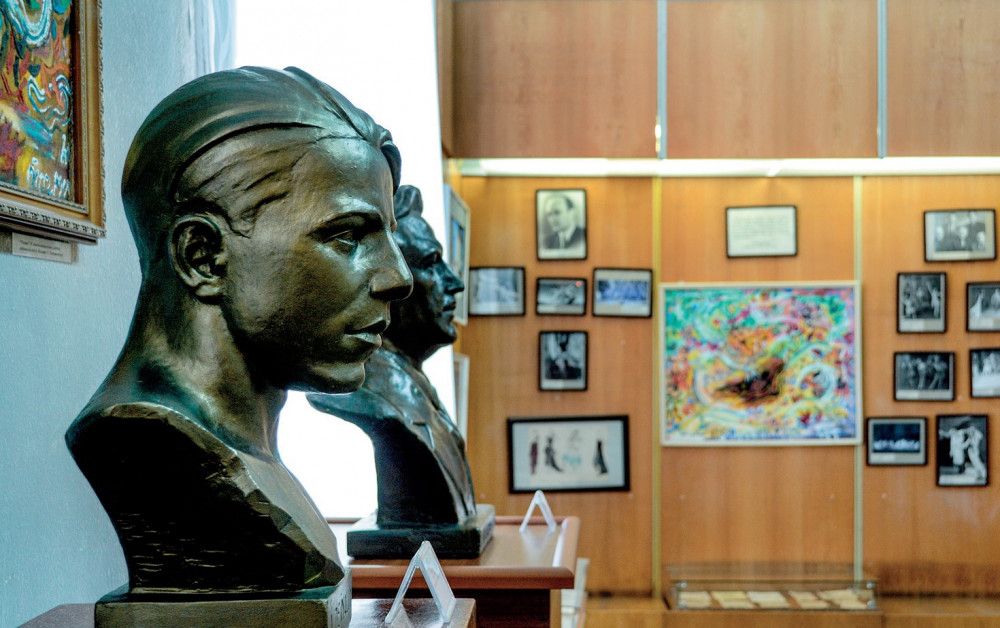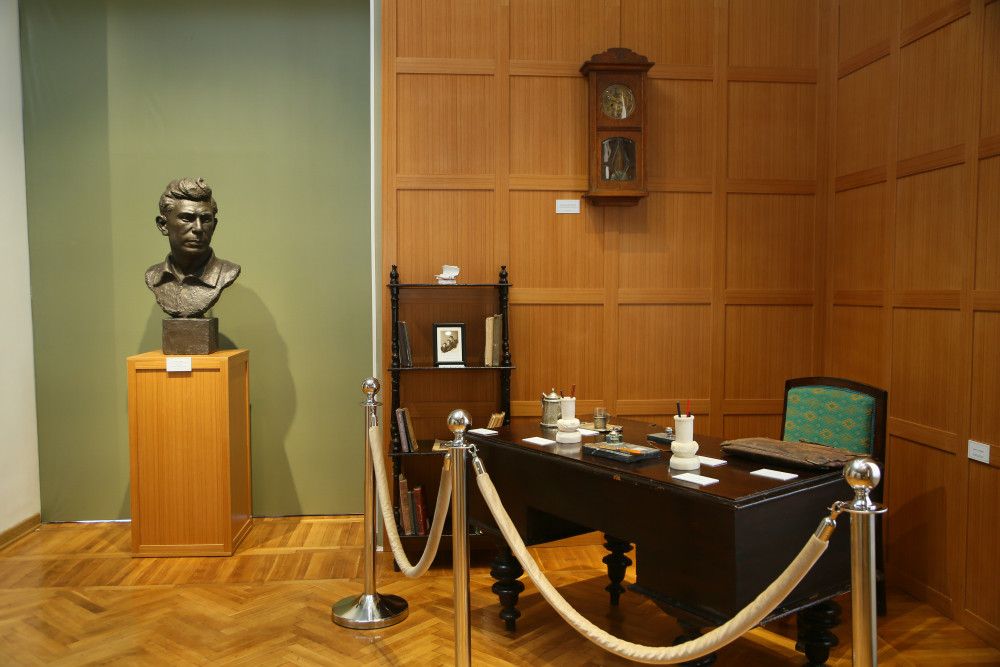Jabbarli -founder of national film dramaturgy - inspirer of women to fight for their rights [PHOTO]
![Jabbarli -founder of national film dramaturgy - inspirer of women to fight for their rights [PHOTO]](https://www.azernews.az/media/2022/10/23/jjabbarli.jpg)
By Laman Ismayilova
Jafar Jabbarli is a great Azerbaijani playwright and one of the founders of the national film dramaturgy. He occupied a prominent place in the development of Azerbaijani art and literature as a playwright, poet, theater director, translator, and screenwriter.
He was a prominent representative of progressive romanticism, whose oeuvresreflected sharp contradictions of Azerbaijani society.
Jabbarli started writing at an early age. His first poem was published in 1911, in the local newspaper Hagigat-i Afkar. In the following years, he penned over 20 plays, as well as stories, poems, essays, and articles.
He also translated European classics, such as Shakespeare's Othello and Hamlet, Pierre Beaumarchais's The Marriage of Figaro, etc.
The writer's focus was on the theater where he achieved huge success. His plays Baku War, Devoted Sariyya or Laughter Through Tears, Shah Nasraddin, Bride of Fire, Sevil, and Almaz gained widespread popularity.
In his plays, Jabbarli was keen on women's freedom, the elimination of gender inequality, and the solution to problems pertaining to mass ignorance among women.
Two of his plays, Sevil and Almaz, both written in 1928, focused on women's role and their struggle against patriarchy.
In 1929, Sevil film was shot based on the play of the same name. It was the first domestic film against gender inequality.
In this play, Jabbarli describes two women, Sevil, a beautiful woman, who obeyed her husband unquestioningly, and Dilbar, Balash's mistress, and a man named Balash, who disliked his past, repudiated traditions and customs and turned away from his own father.
Sevil is the image of a woman, who abandoned all her fears and doubts. The play shows the young woman's transformation into an active fighter for a new life. With great difficulty, Jabbrali managed to find an Azerbaijani woman, who agreed to star in the film. Izzat Orujova, the nation's first cinema actress starred in the national cinema without a veil, which was a very bold step for those times.
Inspired by the success of the play Sevil, Jafar Jabbarli started to work on a screenplay for Almaz film. Unfortunately, he could not finish it amid health issues. His friends and colleagues continued his cinematographic activities and completed the shooting of the film that was released after Jabbarli's death. The film tells about Almaz, who was not scared to come across a "kulak" - a wealthy peasant, called Haji Ahmad. She fought against kulaks, sparked a revolution in the village, led her struggle, and won.
After so many years, Jabbarli's legacy still continues to inspire people. The museum named after him was established in 1934. Over 137,000 exhibits are stored at the Jafar Jabbarli Theater Museum.
The museum collection includes valuable exhibits related to the theater's history, such as manuscripts, role-writing books, photos and negatives of different theatre performances, sound recordings, dress and decoration sketches for stage plays, and much more. All materials are collected chronologically. Here is a complete picture of the development of the Azerbaijani professional theater.
The Jafar Jabbarli State Theater Museum systematically holds events dedicated to prominent theatrical figures, lectures, and exhibitions. In 2004, the Union of Theater Workers awarded the museum the Golden Dervish Award for the acquisition and storage of materials on the history of the theater.
--
Follow us on Twitter @AzerNewsAz
Here we are to serve you with news right now. It does not cost much, but worth your attention.
Choose to support open, independent, quality journalism and subscribe on a monthly basis.
By subscribing to our online newspaper, you can have full digital access to all news, analysis, and much more.
You can also follow AzerNEWS on Twitter @AzerNewsAz or Facebook @AzerNewsNewspaper
Thank you!


